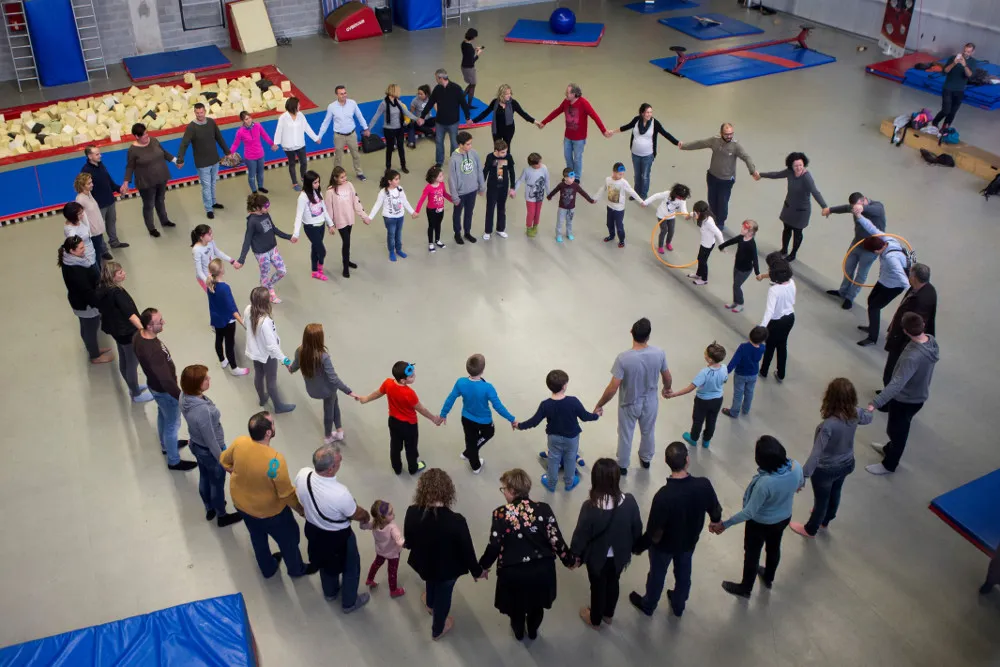A group of 30 children with type 1 diabetes participate in a project that, through a circus workshop, affects the education and social normalization of this disease with the ultimate goal of improving the quality of life of patients.The project, called Diguan, is promoted by the Spanish Diabetes Federation (Fede), the Spanish Diabetes Society (SED) and the Sanofi Pharmaceutical Company.
Within the framework of World Diabetes Day, November 14, this initiative took place last Saturday, November 11, in “The Central of the Circ” of Sant Adrià del Besós (Barcelona), a circus workshop where children couldJump to the elastic bed, try the trapeze and master its balance in the floating corner.
"Meeting other boys and girls with their same disease helps them gain confidence, and also parents can share their situation with other families," said Roca, a diabetes educator and member member.
The Diguan project was born in 2013 as a support tool in adolescence that encourages them to overcome challenges and “transform laziness into activity”.
In this edition of World Diabetes Day, associations remember the affectation of this pathology in Spain: “There are 5.2 million diabetics and 2.5 of them do not know that they suffer from this disease,” recalls Dr. José Luís Guallar,Medical Director of Sanofi.
The symptoms of type 1 diabetes (which suffer only 10 percent of those affected, since the most widespread is type 2) are the increase in thirst, weight loss and general tiredness.Sport, according to the promoters of the campaign, is one of the best remedies for the disease, since it stabilizes insulin levels and helps to lose weight.
The only effective treatment remains the exogenous administration of this hormone, insulin, although there are lines of research in this regard.
"When a child debuts in these workshops, it is a" shock "for parents.It is a chronic pathology and medication is for a lifetime, ”says Fede's manager, Mercedes Maderuelo.
"With these initiatives, families learn about the medication, food or importance of sport, and young people gain a lot of autonomy."
The representatives of the associations have agreed on the importance of diabetological education and training and, in this sense, Roca emphasizes that "it is about giving them the tools, knowledge, skills and attitudes to make their own decisions."
According to the World Diabetes Report of the World Health Organization, in 2014 there were 422 million diabetics worldwide, and the figure is expected to be doubled in the next 20 years due to population growth with obesity and overweight.


